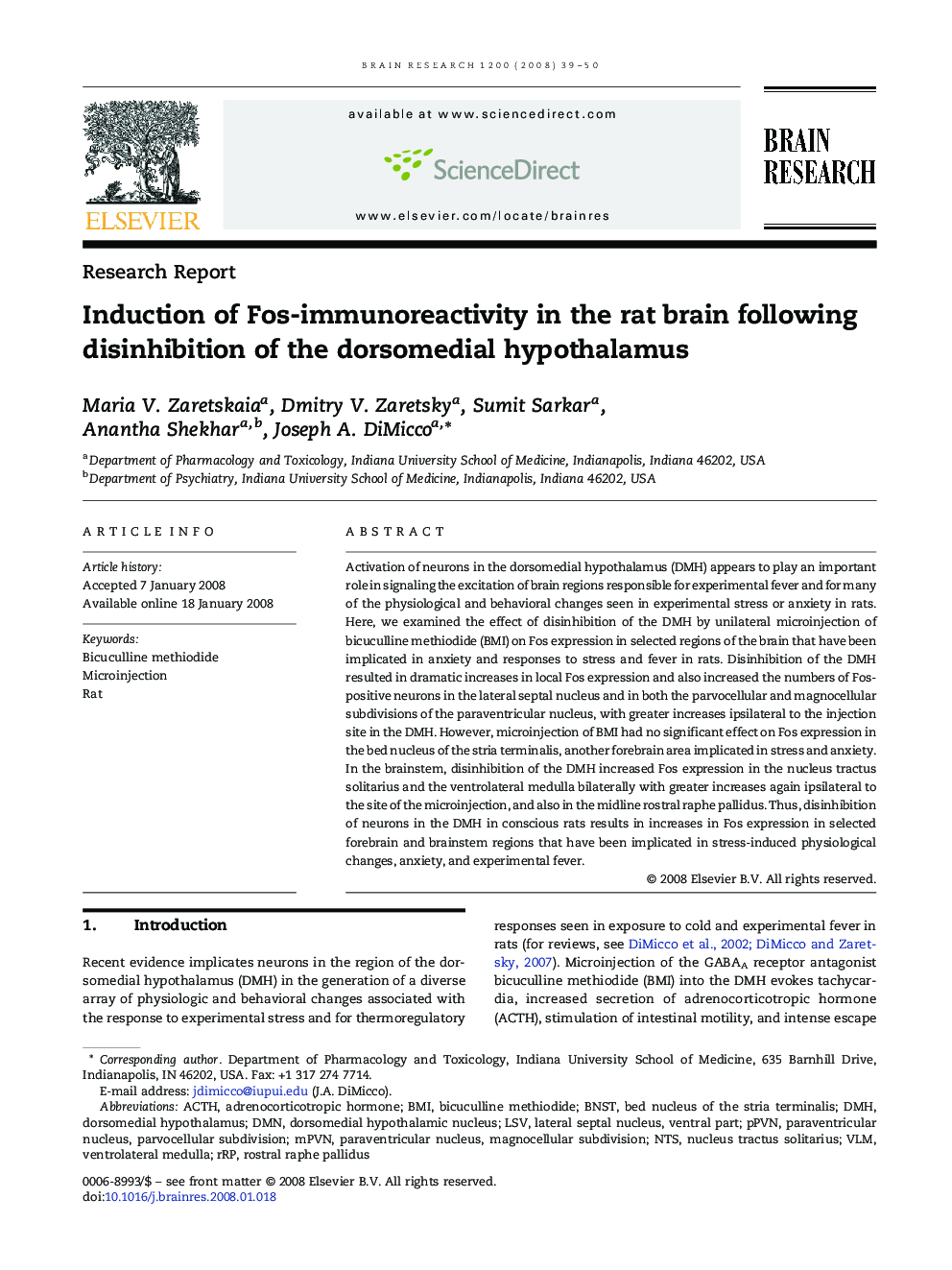| Article ID | Journal | Published Year | Pages | File Type |
|---|---|---|---|---|
| 4329871 | Brain Research | 2008 | 12 Pages |
Activation of neurons in the dorsomedial hypothalamus (DMH) appears to play an important role in signaling the excitation of brain regions responsible for experimental fever and for many of the physiological and behavioral changes seen in experimental stress or anxiety in rats. Here, we examined the effect of disinhibition of the DMH by unilateral microinjection of bicuculline methiodide (BMI) on Fos expression in selected regions of the brain that have been implicated in anxiety and responses to stress and fever in rats. Disinhibition of the DMH resulted in dramatic increases in local Fos expression and also increased the numbers of Fos-positive neurons in the lateral septal nucleus and in both the parvocellular and magnocellular subdivisions of the paraventricular nucleus, with greater increases ipsilateral to the injection site in the DMH. However, microinjection of BMI had no significant effect on Fos expression in the bed nucleus of the stria terminalis, another forebrain area implicated in stress and anxiety. In the brainstem, disinhibition of the DMH increased Fos expression in the nucleus tractus solitarius and the ventrolateral medulla bilaterally with greater increases again ipsilateral to the site of the microinjection, and also in the midline rostral raphe pallidus. Thus, disinhibition of neurons in the DMH in conscious rats results in increases in Fos expression in selected forebrain and brainstem regions that have been implicated in stress-induced physiological changes, anxiety, and experimental fever.
